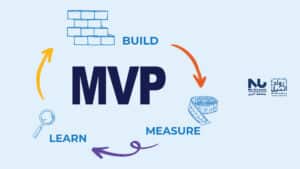Money is the bloodline of any business, and consequently, a major concern for the start and continuity of it. That explains why lack of funds is considered one of the main issues that hinders over 94% of new businesses that fail during the first year of operation.
However, the solution is simple: while new companies are looking for short-term sources of finance to manage beginning expenses, and scaling companies are looking for long-term sources of finance that can support their growth, investors are also looking for wealth creation opportunities.
So, if you are a founder looking for the best way to finance a startup business, you’ve come to the right place!
Below, you can find an overview of the common sources of finance for entrepreneurs; some may apply to early stage startups, while others are more relevant to fast-growing and mature companies. Hence, wherever you are in your business journey, you can find what suits you right here.

Understand The General Realities of Getting Funded
If you have a startup, you need to know that your business funding relies on specific details like your idea and business stage.
For instance, many ongoing companies approach standard business credits from traditional banks while innovative high-tech startups get venture financing that would not be accessible to steady, settled organizations that show sluggish development.
It would also help if you realized some facts about sources of funds for business. For instance, venture capital financing is scarce, and many banks don’t finance business startups because banks aren’t supposed to invest depositors’ money in new businesses.
You will learn more about those small business funding options and much more in this article.
Where to Get Your Next Business Fund
The process of looking for different sources of finance for business relies on how you can match the needs of your company with the amount of funds required.
That is why, as an entrepreneur, you need to have a business plan that explains exactly how much money your business needs, where the fund will be directed, and how long it will take you to earn it back. Only then you can find investors for your idea.
1. Personal savings Or Bootstrapping
Bootstrapping means self-funding without any external sources of finance, and is considered an effective way to fund your project. Many entrepreneurs use their savings at the early stage of their project development because it is suitable for providing initial needs for the project while improving their business cash flow.

2. 3 Fs (Family, Friends, and Fools)
At the earliest stage of your business, you need to enhance your network with what is known as The 3Fs “your family, friends, and fools”, who may fund you before you approach professional investors. They may invest in your business because they believe in your idea or in you as a person and business owner. However, they might be referred to as “Fools” because of the risk associated with lending or investing in a seed venture. On a side note, since they are not professional investors, you should know that this type of financing is often pursued to cover the costs of setting up a new company or to bridge the gap till the first round of pre-seed funding.
The advantage of this funding type is that it is a quick and cheap way of collecting cash.
3. Angels/Seed Investment
Angel investors are groups or individuals who invest their own money to provide financial support for fast-growing startups at their early stages of development. They typically offer smart capital; not just money but also networking opportunities and knowledge within specific sectors. If you are looking for seed funding, try to find an angel that fits with your company in terms of experience and sector knowledge then check out this list of angel investors in Egypt.

4. Venture Capital [VC]
Venture capital [VC] is a kind of private equity that includes investment banks and financial institutions, which focuses specifically on high-risk investments in startups with long-term growth potential. VC firms usually have an asset of a particular size that must contribute to various organizations with different risk profiles in a specific timeframe like 10 years to spread the risk across a wide portfolio.
You can only get VC funds if you have a suitable company that has already passed the Seed Stage. This type of investment is meant to help startups grow faster than they would organically.
5. Getting Micro Loans and Debts
Micro-loans are small, short-term loans with a low-interest rate given out to independently employed people, new companies with low capital prerequisites, or private ventures with only a few employees.
Although banks are reluctant to offer long-term loans to startups, as mentioned above, many governmental programs encourage them to do so. For instance, NilePrenures launched Business Development Service Hubs [BDS Hubs], funded by the Central Bank of Egypt in partnership with 11 banks to support entrepreneurs and small enterprises by providing them with non-financial services that improve their work environment and enable youth to establish private enterprises while becoming more qualified for loans.
6. Business Incubators
Most business incubators are managed by professional investors, government agencies, and big companies. The incubators can be relied on for access to specific technologies or training that can be considered an essential part of bootstrapping your business. Incubators generally focus on the high-tech sector by providing support for new businesses in various stages of development. The incubation phase can last up to two years, and once the product is ready, the company usually leaves the incubator’s premises to enter its industrial production phase and become on its own.
NP Incubate program targets business visionaries and startup founders to support them from ideation till commercialization with monetary and non-monetary services that allow them to become viable ventures, without asking for any equity in return.

In summary, there are many ways of financing your project. You, as an entrepreneur, must do your research on various accessible sources of finance for small businesses. This will help you in picking the right source that suits your circumstances and business stage.




